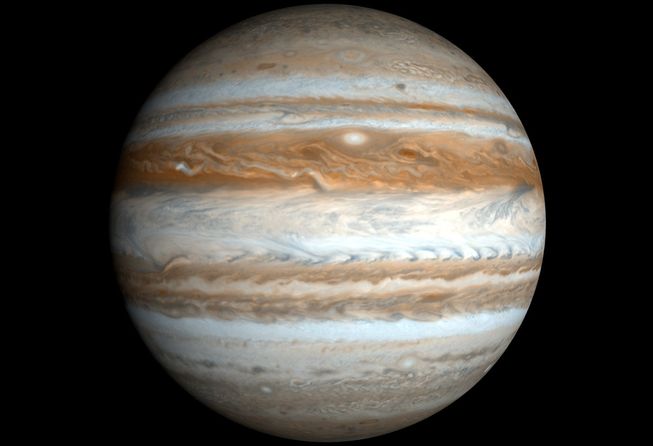Jupiter formed in a geologic blink. Its rocky core coalesced less than a million years after the beginning of our solar system, scientists reported Monday in the Proceedings of the National Academy of Sciences. Within another 2 million or 3 million years, that core grew to 50 times the mass of Earth.
Scientists have previously built computer models of the birth of Jupiter. But this study “is the first time that we can say something about Jupiter based on measurements done in the lab,” said study co-author Thomas S. Kruijer, a researcher at the Lawrence Livermore National Laboratory in California.
It might seem odd that scientists used meteorites to determine the age of Jupiter, but the findings present a clear line of deduction that identifies Jupiter as the oldest planet.
Scientists showed through isotope analyses of meteorites that Jupiter's solid core formed within only about one million years after the start of the solar system history, making it the oldest planet.
Through its rapid formation, Jupiter acted as an effective barrier against inward transport of material across the disk, potentially explaining why our solar system lacks any super-Earths (an extrasolar planet with a mass higher than Earth's).
The team found that Jupiter's core grew to about 20 Earth masses within one million years, followed by a more prolonged growth to 50 Earth masses until at least 3-4 million years after the solar system formed.
Source: washingtonpost.com, popularmechanics.com, timesofindia
